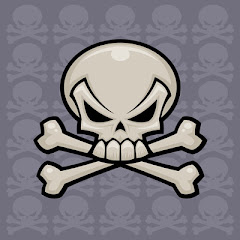Many people have copyrights, including writers, singers, and companies. These people have copyrights that give themselves exclusive rights over the reproduction, distribution and adaptation of their work. However, in recent years, the anti-copyright movement has been on the rise, and the Internet provides quick interconnectivity between the users all over the world, making the cost-free reproduction and distribution of music files, books and movies possible. Activists that support the anti-copyright laws often argue that the Internet itself has already made current laws for copyright extinct. They think that many creators believe in giving others the right to copy and modify their work in order to achieve more exposure to the outside world in the modern times. Others argue that copyright represents a smart monopoly and giving such exclusive copyright to their work discourages further creativity. So far, the most infamous display of the anti-copyright movement is the suing of the four founders of The Pirate Bay. They are reportedly the biggest company that provides free files for the public to download and is based in Sweden. In the 2009 European Party elections, another unrelated organisation that developed in almost the same way in Sweden, it is the third largest political party outside the national parliament. In the end, they garnered 7.13% of the total votes, earning them a seat out of the eighteen that was allocated for Sweden. Its aim is to reconstruct and reform copyright and patent laws, as well as to protect the rights to privacy of the individuals, arguing against the right of the government to look at the email messages, SMS' and the phone calls of the public. In June last year, Swedish Software company Global Gaming Factory X AB said that it would buy over The Pirate Bay and turn it into a paid site that would operate on a "give-and-take" model that paid users to share files and would compensate content owners. According to other sources, it is in the process of buying it over, since they have estimated that it could be turned into a legitimate business. The latest survey done by The Leading Question, which is a specialist media and technology research agency reveals that as far as British teenagers are concerned, they are participating significantly less in file-sharing. In 2008, UK teenagers were downloading 842 illegal tracks per iPod, but this number decreased by 5% in half a year. The 14-18 year olds made the biggest drop, decreasing 16% from 42% from 2007-2009. Tim Walker, the CEO of The Leading Question, said that he believes that the best way to beat piracy is to create big, new, licensed services that are easier and more fun to use, and provides unlimited MP3 downloads as well as unlimited streams. I strongly think that there should be a law to protect the exclusive rights of companies over their work. Those who share files in public should be caught and charged. If the public is allowed to share files freely across the Internet, then those who sang the songs, wrote the books, and acted in the movies will not be able to earn enough money to feed them, because they can only earn money when they sell copies of their CDs or books. I think that, like the case in US, record companies that have been suing college students have a right to do so. The Recording Industry Association of America, the RIAA, estimates that illegal music-sharing worldwide costs 12.5 billion each year and causes 71,000 job losses in America. This has been going on for long enough, and in my opinion, those who share files should be charged accordingly. Judges should be strict with perpetrators, as in the case of Jammie Thomas-Rasset, where the jury decided to fine 80,000 for each of the 24 songs she posted online for the public to download for free. I support the 13 Hollywood studios which are calling for The Pirate Bay to be closed. I also agree that with what Tim Walker suggested. The more user-friendly websites will definitely attract much more people to go to them. I think that people should respect companies more and not download illegal downloads- think of all the people who worked hard to create the tracks. Shouldn't we acknowledge these people? In conclusion, I think we should respect the law and download only from websites with licenses. Musicians, actors and writers are all professions and they need to earn money for their families. They need money to survive too. Organisations like The Pirate Bay prevent them from earning money. On top of that, those businessmen who sell CDs, movies and books, will have no business and they too, will suffer. We should respect the law, not only for the sake of these people, but for you. If you are found guilty of downloading illegal tracks, won't you just be creating more trouble for yourself? You may even risk getting charged by the law. Stop using illegal websites and help not only yourself, but also others!
The Copyright Wars
Posted by
Alex
Thursday, 23 December 2010


0 comments:
Post a Comment